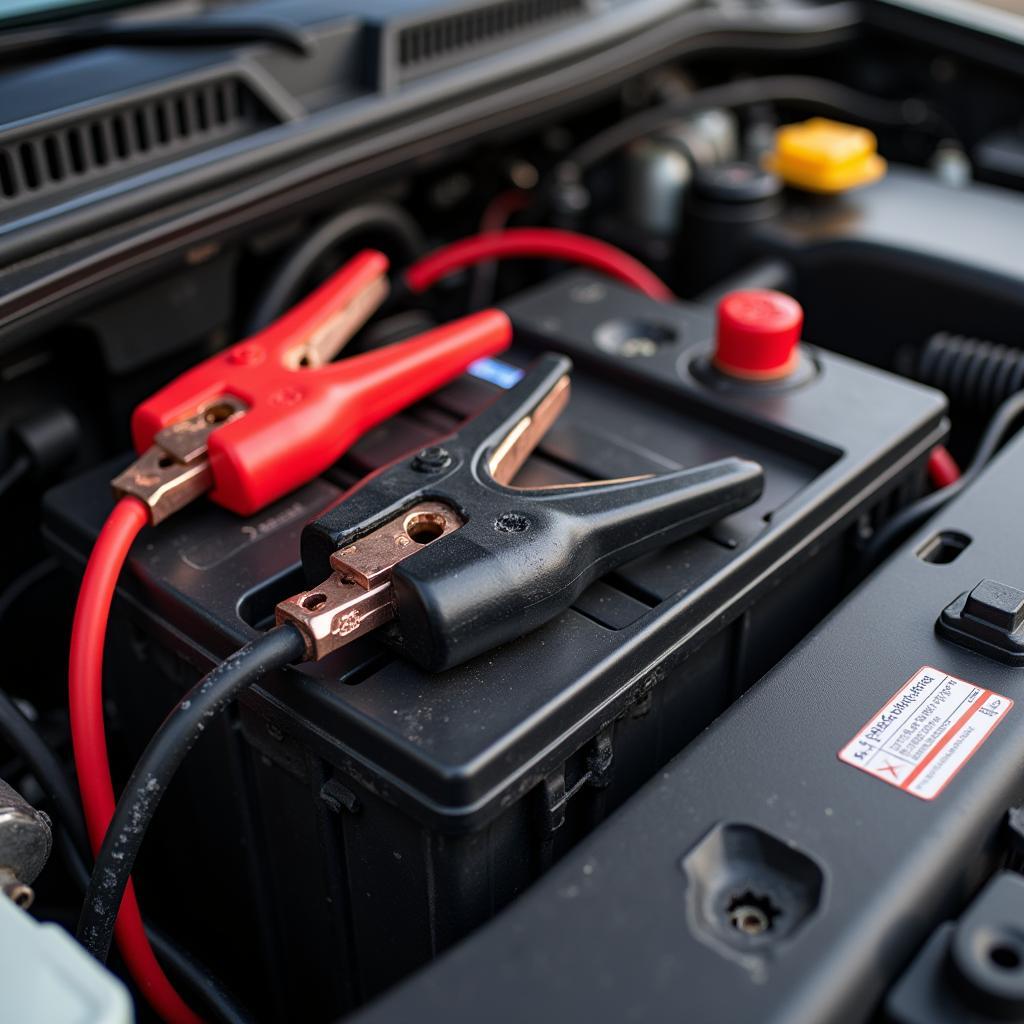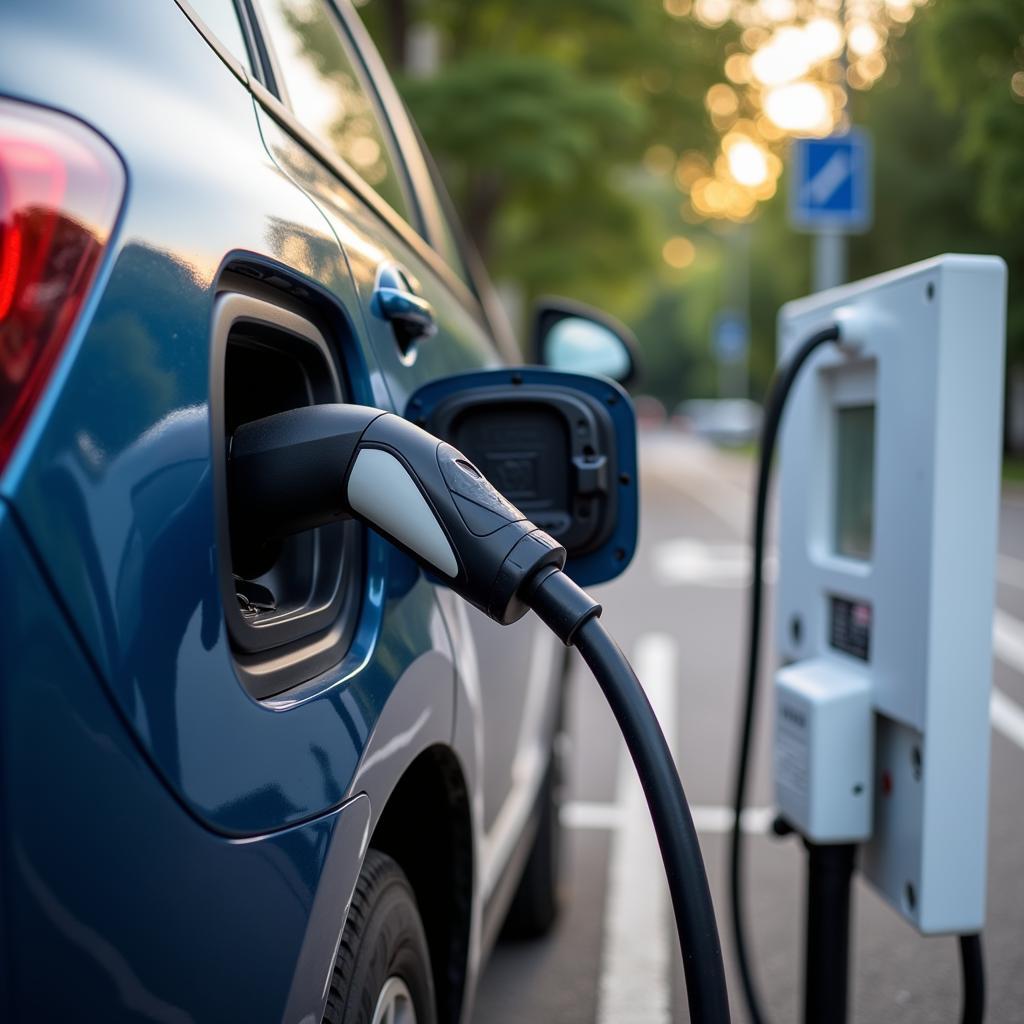If your car demands constant charging, you’re not alone. This frustrating issue, a “Problem When Car Needs Constant Charging,” can stem from various causes, impacting both traditional and electric vehicles. Let’s explore the reasons behind this problem and how to troubleshoot it.
A constantly discharging battery can leave you stranded and frustrated. Whether you drive a gasoline-powered car or an electric vehicle, understanding the underlying causes is the first step to getting back on the road. Check some of the problems with electric cars.
Why Does My Car Need Constant Charging?
Several factors contribute to a car needing constant charging. For gasoline-powered cars, a failing alternator is a common culprit. The alternator recharges the battery while the engine runs. A faulty alternator can’t replenish the battery, leading to constant drain and the need for frequent charging.
Another issue could be a parasitic drain. This occurs when an electrical component continues drawing power even when the car is off. A faulty light switch, a malfunctioning radio, or even a glove box light left on can drain the battery over time.
For electric vehicles, the reasons can be different. Excessive use of climate control, especially in extreme temperatures, can significantly impact battery range and necessitate more frequent charging. Driving style also plays a role. Aggressive acceleration and braking consume more energy, leading to a quicker battery depletion. Cold weather can also reduce battery performance in EVs. Finally, battery degradation over time is a natural occurrence, and older batteries may hold less charge, requiring more frequent trips to the charging station. You can learn more about what are the problems with electric cars.
 Car Battery Constant Charging Problem
Car Battery Constant Charging Problem
Troubleshooting a Car That Needs Constant Charging
First, identify the type of car you have: gasoline or electric. For gasoline cars, check the alternator’s voltage output using a multimeter. If the reading is below 13.5 volts with the engine running, the alternator likely needs replacement. Next, investigate parasitic drains by disconnecting the negative battery cable and using an ammeter to measure current draw. Any reading above 50 milliamps suggests a parasitic drain.
For electric vehicles, assess your driving habits. Moderate your acceleration and braking, and pre-condition the cabin while the car is still plugged in to minimize battery drain. Check the battery’s health report, often accessible through the car’s infotainment system, to gauge its capacity and identify any potential issues. Are there other 20 problems with electric cars? It’s possible.
 Electric Car Charging Frequently
Electric Car Charging Frequently
What if the Problem Persists?
If the problem persists after initial troubleshooting, consult a qualified mechanic for gasoline cars or an EV specialist for electric vehicles. They can perform more advanced diagnostics and pinpoint the root cause. Remember, addressing this issue promptly can prevent further damage and ensure your car remains reliable.
“Regular maintenance is key,” advises automotive expert, Robert Miller. “A simple battery check can prevent a lot of headaches down the road.” Another expert, Susan Davis, adds, “For EVs, understanding your car’s energy consumption patterns is crucial for maximizing range and minimizing charging needs.”
Conclusion: Solving the Constant Charging Problem
The “problem when car needs constant charging” can be a nuisance, but with proper diagnosis and troubleshooting, it’s solvable. By understanding the potential causes and taking appropriate action, you can get back to enjoying the open road without the constant worry of a dead battery. Contact AutoTipPro at +1 (641) 206-8880 or visit our office at 500 N St Mary’s St, San Antonio, TX 78205, United States, for expert advice and assistance. Explore further by reading about what are problems with electric cars.
FAQs
- How often should I charge my electric car? It depends on your driving habits and the car’s battery capacity. Most EVs recommend charging when the battery reaches 20-30%.
- Can extreme temperatures affect my car’s battery? Yes, both extreme heat and cold can impact battery performance.
- What is a parasitic drain? A parasitic drain occurs when an electrical component draws power even when the car is off.
- How do I check my car’s alternator? Use a multimeter to measure the voltage output.
- How long do EV batteries last? Most EV batteries are designed to last 8-10 years or 100,000-150,000 miles.
- What are some common signs of a failing alternator? Dimming headlights, flickering interior lights, and difficulty starting the engine.
- Is it bad to constantly charge an electric car? Continuously topping off the battery to 100% can potentially degrade it over time, but occasional full charges are not harmful. See what some of the problems with electric cars 2019 were.






Leave a Reply